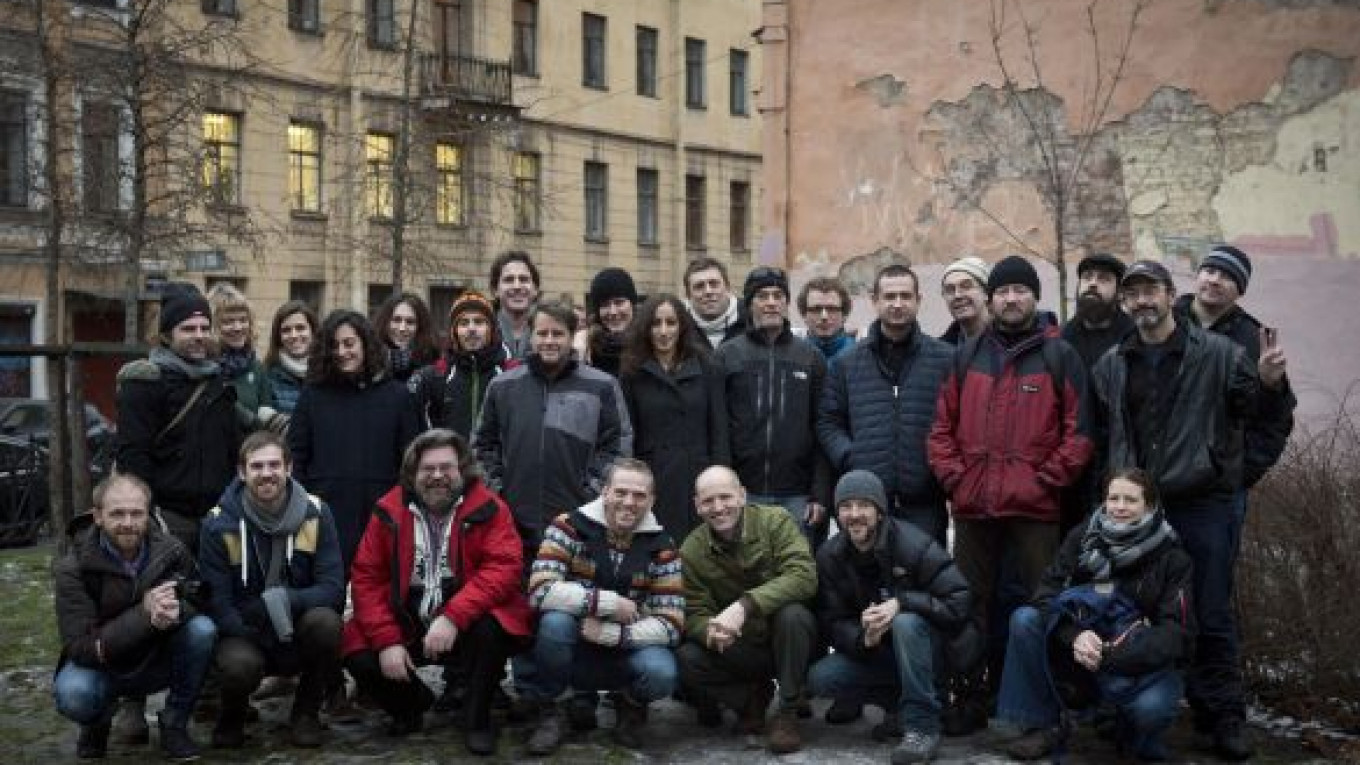Investigators have indicated that foreign activists facing trial for a protest against Arctic oil drilling cannot leave the country, meaning they will not be home for Christmas despite an international court ruling, Greenpeace said Friday.
Twenty-six foreigners from 17 countries were among the 30 people arrested on the Greenpeace icebreaker Arctic Sunrise after a protest in which environmental activists tried to scale Russia's first offshore oil platform in the Arctic.
They face up to seven years in prison on hooliganism charges, but were released on bail last month by courts in St. Petersburg and hoped to be able to go home pending trial or further action by investigators that requires their presence.
But in a letter to one of the activists, the Investigative Committee rejected a request seeking exit visas for the non-Russians, Greenpeace said.
The committee "has written to one of the 30 — Anne Mie Jensen of Denmark — indicating that they are not free to leave the country," the Netherlands-based environmental group said in a statement.
"Lawyers for Greenpeace expect all of the non-Russian defendants to be treated in the same way by the authorities, meaning they would now be forced to stay in St. Petersburg for Christmas and possibly well beyond," it said.
The Investigative Committee declined immediate comment.
Greenpeace says the protest was peaceful and the charges unfounded. The arrest of the activists, who were held in jail for two months and initially faced up to 15 years in prison on piracy charges, has drawn criticism from the West.
The United Nations maritime tribunal ruled on Nov. 22 that the Greenpeace ship and its crew must be allowed to leave Russia, but Moscow declined to take part in the case lodged by the Netherlands and has suggested it would defy the ruling.
Ex-Beatle Paul McCartney wrote to President Vladimir Putin last month to seek his help in securing their release and said it would be great if they could be home with their families in time for Christmas, celebrated in many countries on Dec. 25.
"We were seized in international waters and brought to Russia against our will, then charged with a crime we did not commit and kept in jail for two months," Greenpeace quoted Arctic Sunrise captain Peter Willcox, an American, as saying.
"A respected international court says we should be allowed to go home … but we cannot get visas to leave the country."
The Federal Migration Service has said it would not issue visas until it received a direct request from the Investigative Committee, Greenpeace said.
Moscow says activists endangered lives and property in the protest at the state-controlled energy giant Gazprom's Prirazlomnaya platform in the Pechora Sea, a key element of Russia's plans to develop the Arctic.
Putin last week ordered his military to increase its focus on the resource-rich region Arctic, where Russia is vying for control with Canada, the U.S., Denmark and Norway.
The foreign activists include citizens of Argentina, Australia, Brazil, Britain, Canada, Denmark, France, Finland, Italy, the Netherlands, New Zealand, Poland, Sweden, Switzerland, Turkey, Ukraine and the U.S.
A Message from The Moscow Times:
Dear readers,
We are facing unprecedented challenges. Russia's Prosecutor General's Office has designated The Moscow Times as an "undesirable" organization, criminalizing our work and putting our staff at risk of prosecution. This follows our earlier unjust labeling as a "foreign agent."
These actions are direct attempts to silence independent journalism in Russia. The authorities claim our work "discredits the decisions of the Russian leadership." We see things differently: we strive to provide accurate, unbiased reporting on Russia.
We, the journalists of The Moscow Times, refuse to be silenced. But to continue our work, we need your help.
Your support, no matter how small, makes a world of difference. If you can, please support us monthly starting from just $2. It's quick to set up, and every contribution makes a significant impact.
By supporting The Moscow Times, you're defending open, independent journalism in the face of repression. Thank you for standing with us.
Remind me later.






